Urinary tract infection test
We offer two types of tests; Lab Tests and Rapid Tests. This product is under the category Rapid Tests. See all our Rapid Tests by following the link.
See allWe offer several different options of testing methods. This test is done with Urine. See all tests done with Urine by following the link.
See allA urinary tract infection occurs when microorganisms, typically bacteria from the digestive tract, become trapped at the opening of the urethra and start to multiply. In most cases, the bacteria first start to grow in the urethra. This urinary tract infection test is a simple at-home test with instant results to test for the presence of an ongoing urinary tract infection. The test checks for leukocytes, nitrate, and blood in your urine sample to detect a possible urinary tract infection.
For those with recurrent urinary tract infections, consider exploring the link between gut health and UTIs with our Gut Microbiome Small test, as intestinal flora imbalances can indirectly contribute to such infections.
- In stock
- At-home tests
- Fast delivery

Content
Which parameters are measured in the Urinary tract infection test?
This is a simple at-home test with instant results to detect an ongoing urinary tract infection. The test checks for leukocytes, nitrate, and blood in your urine sample to detect a possible urinary tract infection. The test result is displayed by visually comparing it with a color chart found inside the package, so you don't need to send this test to a lab for analysis.
Exploring the Gut-Urinary Link
If you're experiencing recurrent urinary tract infections, understanding your gut health can be a crucial step in managing and potentially reducing future episodes. The gut microbiome plays an essential role in overall health and immunity, and imbalances can indirectly contribute to UTIs. Our Gut Microbiome Small test offers insights into your intestinal flora, helping you gain a more comprehensive understanding of your body's interconnected systems.
About the urinary system
Urinary tract infection is a serious health problem that affects millions of people every year. Normal urine is sterile; it contains fluids, salts, and waste products but is free from bacteria, viruses, and fungi. A urinary tract infection occurs when microorganisms, usually bacteria from the digestive tract, get trapped at the opening of the urethra and begin to multiply. In most cases, bacteria first grow in the urethra.
An infection limited to the urethra is called urethritis. From there, bacteria often progress to the bladder, causing a urinary tract infection called cystitis. If the infection is not treated promptly, bacteria can then travel up the ureters to infect the kidneys. This infection is called pyelonephritis.
The urinary system is structured in a way that helps ward off infections. The ureters and bladder normally prevent urine from backing up toward the kidneys, and the flow of urine from the bladder helps flush bacteria out of the body. In men, the prostate gland produces secretions that slow bacterial growth. In both men and women, the immune system also prevents potential infections. However, despite these protective measures, infections still occur. Escherichia coli (E. coli), a type of bacteria normally found in the colon, causes about 80% of urinary tract infections (UTIs) in adults. These bacteria can enter the urethral opening from the surrounding skin. Other bacteria that cause UTIs include Staphylococcus, Chlamydia, and Mycoplasma. Urinary tract infections are more common in women than in men. One reason for this is that their urethral opening is closer to the source of bacteria (i.e., anus and vagina), and the urethra is shorter, allowing bacteria easier access to the bladder. Another factor is that the prostate gland in men produces secretions that reduce bacterial growth, as mentioned earlier.
Common symptoms of lower urinary tract infection
- Back pain
- Blood in urine
- Cloudy urine
- Inability to urinate despite the need
- Fever
- Frequent urge to urinate
- General discomfort
- Painful urination
Common symptoms of upper urinary tract infection
- Chills
- High fever
- Pain below the ribs
- Vomiting
- Nausea
Storage
Store at room temperature, 15-30°C (59-86°F). Do not store the test strips in the refrigerator or freezer. Do not expose the test strips to moisture, heat, or light before use. Use the test strip immediately after opening the foil pouch.
How does the urinary tract infection test work?
Start by collecting urine in a glass or cup. Ideally, perform the test in the morning after showering, as morning urine is best for the urine sample. Take one test strip out of the package and hold it by the completely white end without colored squares. Dip the colored part of the test strip into the urine in the glass for a maximum of one second. Take out the test strip and gently tap it against the edge of the glass to remove excess urine. Hold the test strip horizontally for 30-60 seconds to allow the reaction to occur. Read your result by comparing the colors of the reaction on the strip with the color chart in the package.
Test limitations
Effects of Abnormal Urine Color on the Test: Certain medications can change urine color, influencing the color development on the test strip. This might hide the color development on the reagent pad or trigger a reaction that appears falsely positive. If you're uncertain about the results, repeat the test once you've stopped taking the medication.
Leukocytes: The test result might not always match the number of leukocytes seen under a microscope. Factors like high humidity, high temperature, and flaws in the vial's integrity can lead to positive results. Sometimes, samples from women might show positive results if vaginal discharges contaminate them.
Nitrite: You should interpret any consistent pink color development as positive. However, ignore pink spots or pink edges. The color intensity doesn't necessarily reflect the number of bacteria present. The test specifically identifies nitrite-producing bacteria. But remember, some bacteria don't produce nitrite. So, even if the result is negative, it doesn't guarantee the absence of a urinary tract infection.
Blood: A false positive result can sometimes occur when bacteria are present in the urine. Ascorbic acid or protein may reduce the reactivity of the blood test. Strong oxidizing agents, such as hypochlorites, can give a false positive result. Urine from menstruating women often, but not always, gives positive results.
FAQ
How is the Urinary tract infection test carried out?
When should I take the test?
Can you somehow see in the urine that there is a urinary tract infection?
How are urinary tract infections treated?
How do kidney stones and enlargement of the prostate gland increase the risk of urinary tract infection?
Related Products
-
Celiac/Gluten Intolerance Test
Experience the simplicity of tracking your gluten sensitivity using GetTested's Celia...€ 19,00 Add to cart -
DNA Immunity & Inflammation Test
The GetTested DNA Immunity & Inflammation test reveals your genetic tendencies to...€ 179,00 Add to cart -
Gut Microbiome Test Small
A healthy gut impacts your brain, immune system, and overall well-being. The Gut Micr...€ 99,00 Add to cart -
Vitamin D test
Our Vitamin D rapid test provides you with answers about whether you have sufficient ...€ 19,00 Add to cart
You may also like…
Trusted by over 10.000+ customers


“The home test was straightforward with easy to follow instructions. The test result was detailed and clear in its presentation. Also had the opport...”
Richard

“We looked at a lot of companies offering the same services but made the decision to go forward with get tested because the labs are based here in t...”
Natasha

“There are other providers out there, I have tried 3. Gettested was the fastest and the customer service was the best. I even received my test on th...”
Alan

“Absolutely perfect, results came after few days and finally after a lots of times visited GP, we finally know why my son has eczema - he is allergy...”
E

“I found them to be professional and not too long a wait for results. Helpful with any after questions. Will be using them again if need be. I highl...”
Eileen

“I really value my test and to see the results. It is a jungle when your health is online. So get accurate and precise knowledge is a gift, as it is...”




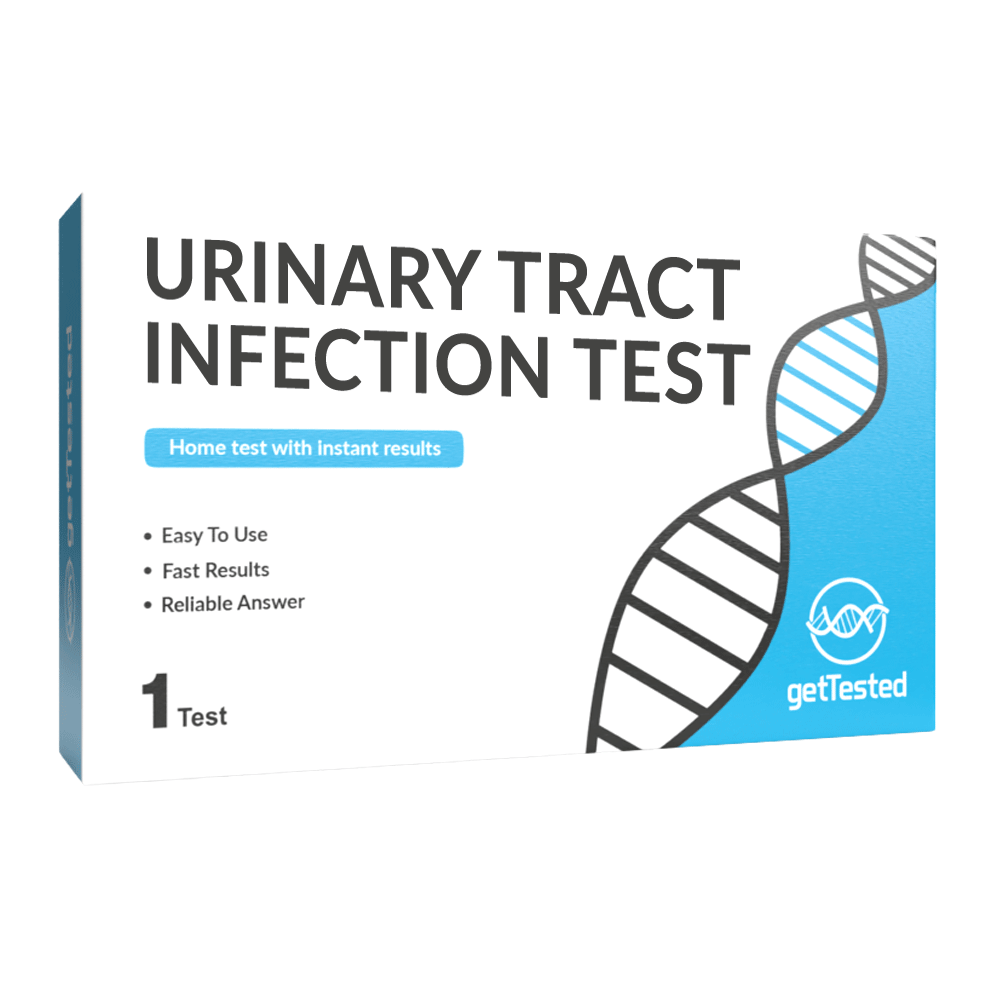
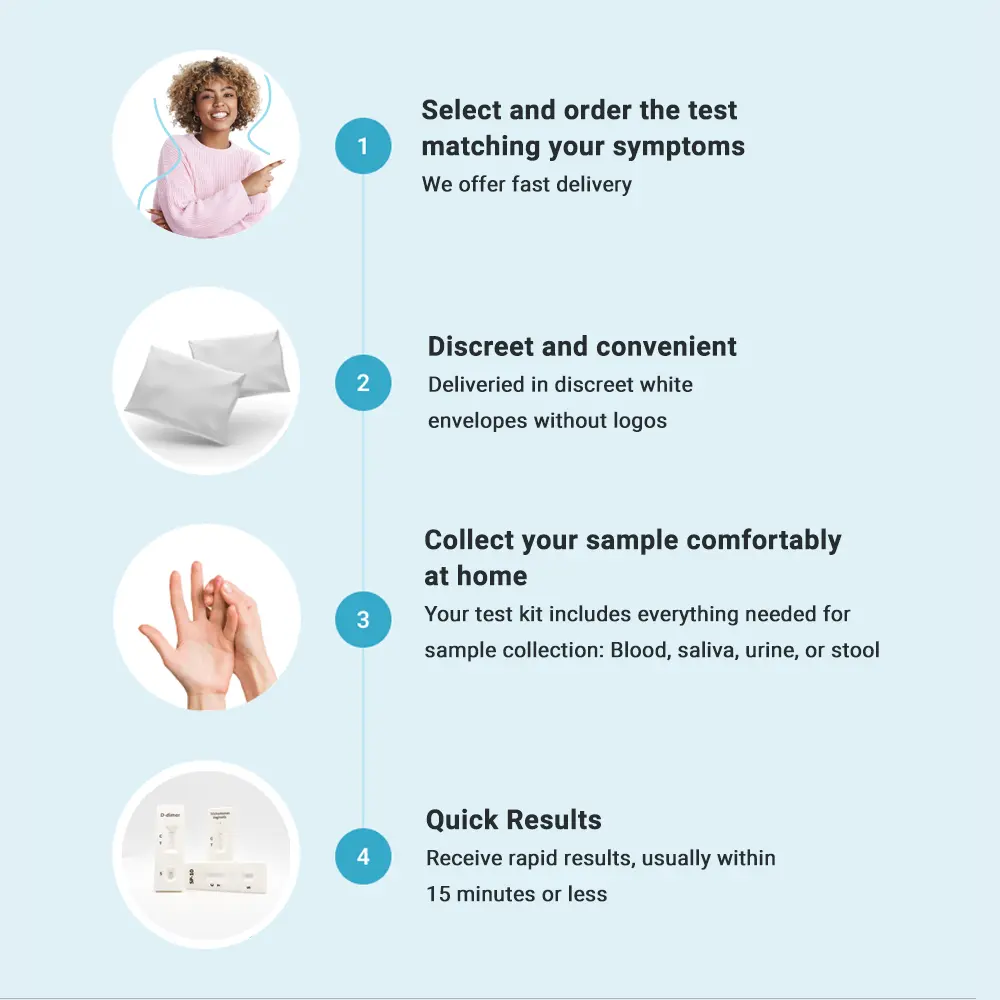





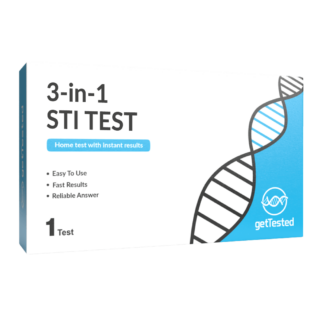

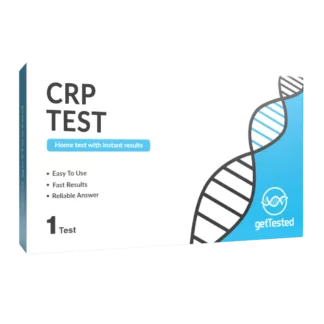
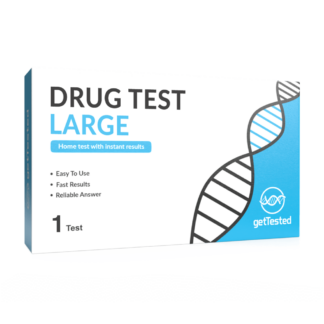












Leave a Reply